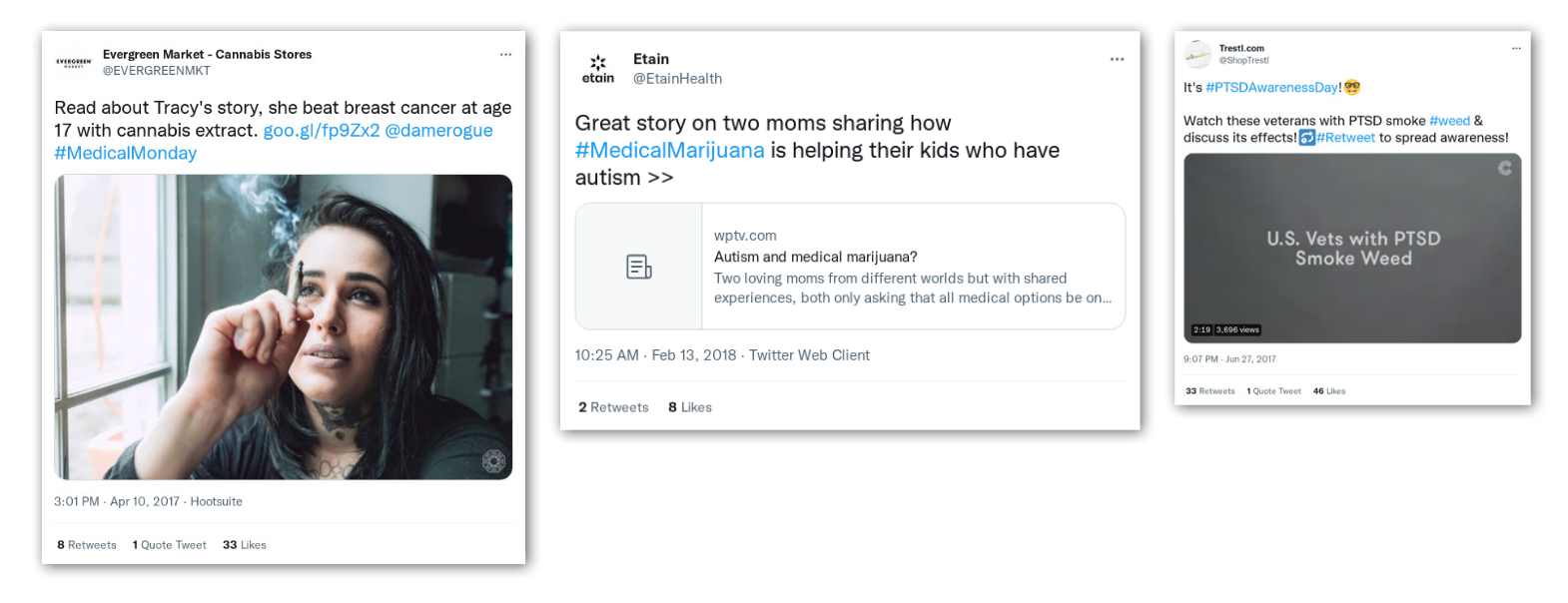Marijuana Health Claims on Social Media May Be Harmful
Marijuana companies use social media to push unfounded health claims, research finds

Smoking is hazardous to your health and so is accepting medical claims being made by marijuana companies on social media, a new study warns.
Data Science Solutions, LLC, has released new research that dives into false or misleading medical claims made by several leading marijuana companies on their social media platforms.
The analysis observes how these claims are framed to appeal to consumers, determines the reach of their messaging, and identifies policy solutions to help increase state and federal regulatory and enforcement action to end false – potentially harmful – marketing.
One section of the report deals with social media posts using supposed consumer testimonials as "expert" opinions, when in fact consumer testimonials can be plagued by such errors as coincidence, the placebo effect and attributing cause to the wrong agent. It cited these three examples:
• Evergreen Market Cannabis Stores in the state of Washington urging its Twitter audience to reach out about “Tracy’s story” and how she says she beat breast cancer as a 17-year-old by using cannabis extract.
• Etain Health, a family-run, woman owned-and-operated cannabis company in New York sharing a story about marijuana supposedly helping kids with autism.
• Trestl, a California based company, shares a video of Veterans who claim marijuana has helped them battle PTSD.

The authors of the claims may – or may not – believe they're true but without solid evidence to back them up, there is no way for consumers to judge their validity. Paid advertising in major media generally adheres to regulations governing accuracy but in the Wild West of social media, it's easier for unchecked claims to sneak through.
Not backed by sound research
“Consumers should understand what they’re up against when perusing social media,” said Sally Greenberg, Executive Director of the National Consumers League. “Twitter in particular may be viewed as a more trustworthy platform and licensed marijuana companies will often cite reliable academic institutions or studies in a misleading way.
"These companies use Twitter to target consumers and declare that their products can help address, even treat, health issues from ‘pain’ to neurological diseases, even cancer. However, these claims are not backed by sound, clinical research – though the data is lacking at best, companies don’t let that stop them from trying to profit,” she said.

More needs to be done
The FDA, FTC, and Congress can do more to protect consumers and hold these companies accountable, NCL said.
The FTC said last week that it was cracking down on fraud and scams on social media – and ordered eight leading companies to explain what they're doing to police advertising.
“Social media has been a gold mine for scammers who tout sham products and other scams that have cost consumers enormously in recent years,” said Samuel Levine, Director of the FTC’s Bureau of Consumer Protection. “This study will help the FTC ensure that social media and video streaming companies are doing everything they can to keep scammers and deceptive ads off their platforms.”
The Data Science paper urges Congress to “encourage FDA and FTC to expand their enforcement against therapeutic claims made by cannabis companies and provide the necessary resources for the FDA to conduct effective oversight of marijuana-related health claims on social media platforms.” It also recommends FDA begin using automated tools to monitor cannabis companies’ social media posts efficiently and effectively.
“Consumers deserve better,” said Greenberg. “These companies can and should market their products in an honest way and put consumer health over profits. Investing in thorough research so that we may better understand the true therapeutic potential of marijuana would be a win-win for all.”
To learn more about the risks of unregulated cannabis products, visit cannabiswatch.org.

